How To Detect & Protect Yourself Against Hacked Webcams – Ultimate Guide

Urfa Sarmad
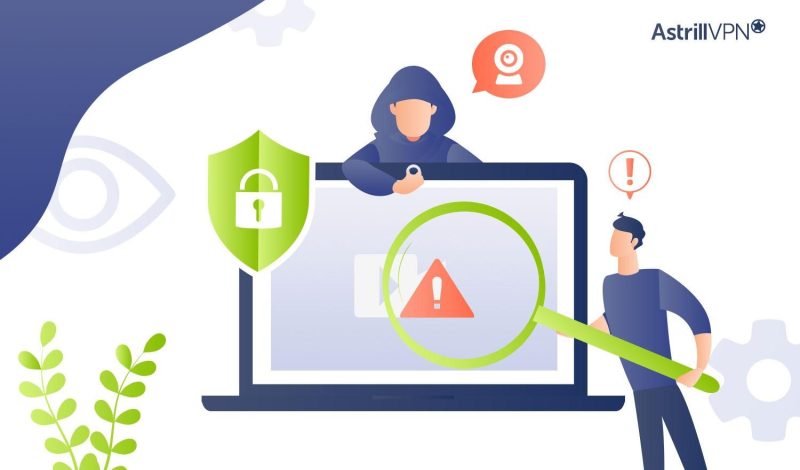
Someone hacking your webcam, spying on you, and then blackmailing you that they’ll release the footage and your whereabouts to the public may sound like a plot straight out of the movies, but unfortunately, it’s much more accurate than you think. Unfortunately, webcams are everywhere, from your phones to your laptops, security systems, and PCs. People at times turn a blind eye towards webcam security, not knowing that not enhancing webcam security can leave them vulnerable to hacking, which can lead criminals to spy on you. So, how can you detect webcam hacking? And what steps can be taken to prevent it? We will discuss all of these pressing questions in this in-depth guide. So, without any further delay, let’s get started.
Table of Contents
How Does A Webcam Get Hacked?
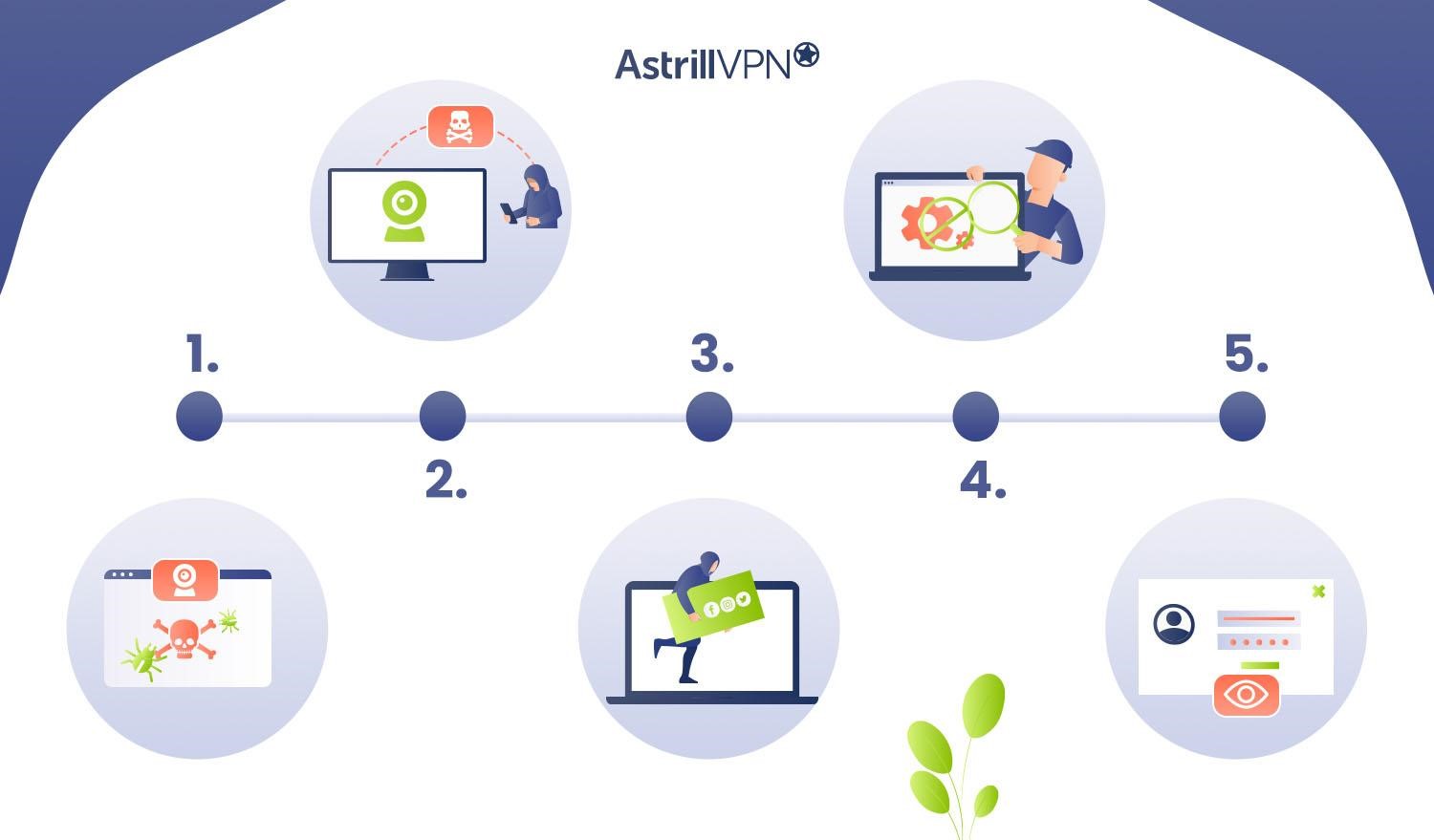
How do these webcam hackers gain unauthorized access to your webcam in the first place? Here are the most common ways through which webcams get compromised:
1) Malware
If your device gets infected with malicious software, such as viruses, trojans, and spyware, it can gain access to your webcam. Once the Malware is installed on your device, it takes control of your webcam and uses it to record videos and audio without your knowledge.
2) Remote Access Tools
Although Remote Administration Tools (RATs) are designed to gain access to computers for legitimate reasons, some hackers can use these tools for malicious intent. If the attacker gains access to your computer using a remote access tool, they can easily access your webcam. There are also third-party remote tech supp ort services rampant with scammers who are only waiting to gain access to your devices. Remote access allows tech support scammers to gain unauthorized access to your devices and infect them with Malware.
3) Social Engineering
Attackers can use social engineering techniques to trick you into trusting and giving them access to your webcam. Other times, you click on a link thinking it’s from a legitimate source, but it installs Malware on your device after you click it. They can also pose as technical support to gain access to your device.
4) Outdated Software
Webcams can have vulnerabilities that hackers can exploit. If the webcam’s firmware or software has unpatched vulnerabilities, the attacker can exploit this weakness to gain unauthorized access. Also, if the software is outdated, its vulnerabilities make it easier for attackers to hack your webcam.
5) Weak Passwords
Having a strong password is essential to ensure that you don’t get hacked. If you have a weak password that can be guessed easily, then there is a higher risk for your online accounts and devices to get compromised easily by hackers. Having strong passwords includes the following components: uppercase and lowercase letters, special characters, and numbers.
How Common Is Webcam Hacking?
You might be wondering, are hacked webcams a common occurrence? We’ll let the stats speak for themselves. It is more common than we like to believe, and the thought of someone spying on us through a webcam gives you shivers and makes you highly uncomfortable. How concerned should you be about webcam spying?
- Experienced hackers can compromise your webcam in under a minute. According to research by the University of Maryland, a hacking attack happens every 39 seconds. Although not all the attacks are targeted towards webcams, they become easy targets for hackers since they have weaker security.
- According to a GoodFirms survey, they found that 30% of users experienced data breaches due to having weak passwords. Weak passwords are short and easy to guess, and hackers use social engineering techniques to spread Malware to your device, which they can then use to track what you type and discover your passwords. Webcams are easy to hack once they know the password, allowing them to track all the activities on your device.
- On a positive note, a survey was carried out by HP Webcam Security Study to understand the level of awareness associated with webcam hacking and how customers changed their behaviors as a result. According to the survey, awareness of webcam hacking is high, with 79% of the respondents stating that they realize their webcam could get hacked and that their privacy could be compromised through webcam hacking.
How To Detect That Your Webcam Got Hacked
Let’s now discuss how to know if your webcam is hacked and the exact telltale signs that will make it evident that your webcam has gotten compromised.
1) Check The Webcam Indicator Light
If you notice that the webcam indicator light is on, especially when you’re not using it, that’s a warning sign, and you must investigate why. It’s a surefire sign that your webcam has gotten compromised. It might also be that an app or browser extension is running in the background and using your webcam. No app, however, should have access to your camera and turn it on if you haven’t given explicit permission. You can check and delete those apps.
2) Check Your Browser Extensions
Browser extensions are another possible reason your webcam turns on without your consent or knowledge. Check if your webcam indicator light turns on whenever you open a web browser (Chrome, Edge, Firefox, etc.) That can indicate whether a browser extension is using your camera. You can deactivate/disable your extensions one at a time and then enable them one by one, restarting your browser each time to rule out the suspect causing this issue.
3) Your Antivirus Software Reveals Sketchy Apps
A reliable antivirus software can easily detect suspicious files and apps that can harm your device and compromise your data. If you have an antivirus installed, scan your device for any unusual or suspicious apps or activity. Also, check and see if it detects Malware on your device. Malware can install RATs (Remote Access Tools) on your device to gain unauthorized access to your webcam. If your webcam has been compromised, your antivirus software can remove suspicious apps and content contributing to this.
4) Look Out For Audio & Video Recordings
If you’ve encountered webcam hacking, you should check for audio and video files on your computer. Go to the dedicated folder on your computer that stores webcam files and then check whether your webcam’s settings or the folder has been changed without you being aware of it. If you find audio and video recordings you haven’t recorded yourself, it’s a confirmation that your webcam has been compromised. You can also open your hard drive folders and check for odd and suspicious webcam video files you haven’t saved.
5) Check If Your Webcam Process Is Running
You should also check if your Webcam process is running. You can check by heading to the Task Manager on Windows and looking for all programs currently running under the Processes tab. If you find any, reboot your device and check if your webcam has activated automatically. You have a hacked laptop camera if you notice and observe any signs of unauthorized use.
How Can You Protect Yourself From Getting Spied on Through Your Camera?
You can enhance your webcam security and ensure that no one can spy on you or track your whereabouts in several ways. These include:
1) Using A VPN
A VPN (Virtual Private Network) masks your IP address and encrypts your internet traffic, making it challenging for malicious actors and third parties to intercept your data. When using a public network, you can become easily vulnerable to hacking. That’s why securing your connection is essential when using a public network. Public unsecured networks are accessible for hackers to distribute Malware and compromise your data and devices.
AstrillVPN protects against prying eyes and prioritizes your security and privacy. With its robust security features, from a strict No-Logs Policy, Kill Switch, Split Tunneling, and excellent security protocols like WireGuard and OpenVPN, webcam hacking will be the last thing you’ll have to worry about. Here’s how you can sign up for AstrillVPN and take your privacy and security to the next level:
- Sign Up for AstrillVPN, either directly through the website or by downloading it from the App Stores.

2. Log In with your credentials.
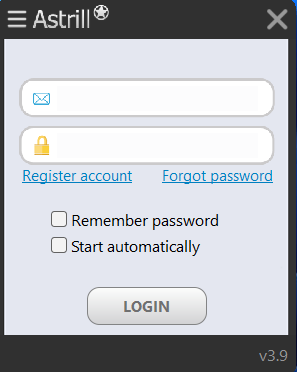
3. Once you’ve logged in, choose a location server of your choice. You can also change the protocols to one that you want.
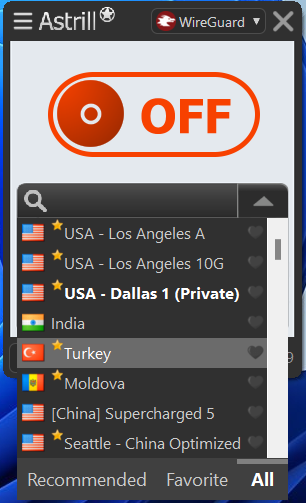
4. Afterward, you can turn on the VPN connection and browse using public networks safely and securely.
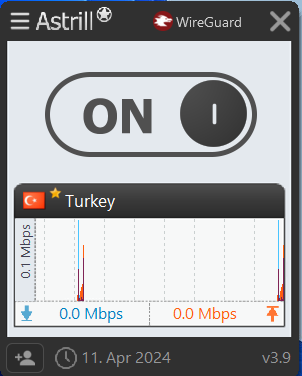
2) Avoid Suspicious Links & Downloads
Phishing scams are rampant, and attackers pose as someone you trust or a person of authority, ultimately tricking you into downloading or clicking suspicious links that either distribute malware to your device or compromise your data. Sometimes, these attackers pose as tech support agents and use remote access tools to gain unauthorized access to your device and camera. Users should learn to be able to spot Phishing techniques from a mile away and be cautious before clicking on any links that they find suspicious.
3) Use A Reliable Antivirus Software
You should get your hands on reputable antivirus software that gets the job done and can quickly detect if malware or suspicious apps on your device have gained access to your webcam. At the same time, you should regularly update your operating system (Windows, macOS, Linux, etc) and all software, including your web browsers, since these updates include security patches. You should also check for updates to your webcam’s firmware and drivers. Webcam manufacturers release security patches to address vulnerabilities.
4) Enable Firewall
A firewall protects your system by monitoring network traffic and blocking anything suspicious. You should configure your Firewall to prevent unauthorized access to your computer. Your router’s Firewall should be enabled and secured with a strong password. Here’s how you can enable Firewall on Windows and macOS:
Windows
- Search for the Control Panel through the search bar next to the Windows icon at the bottom of the screen.
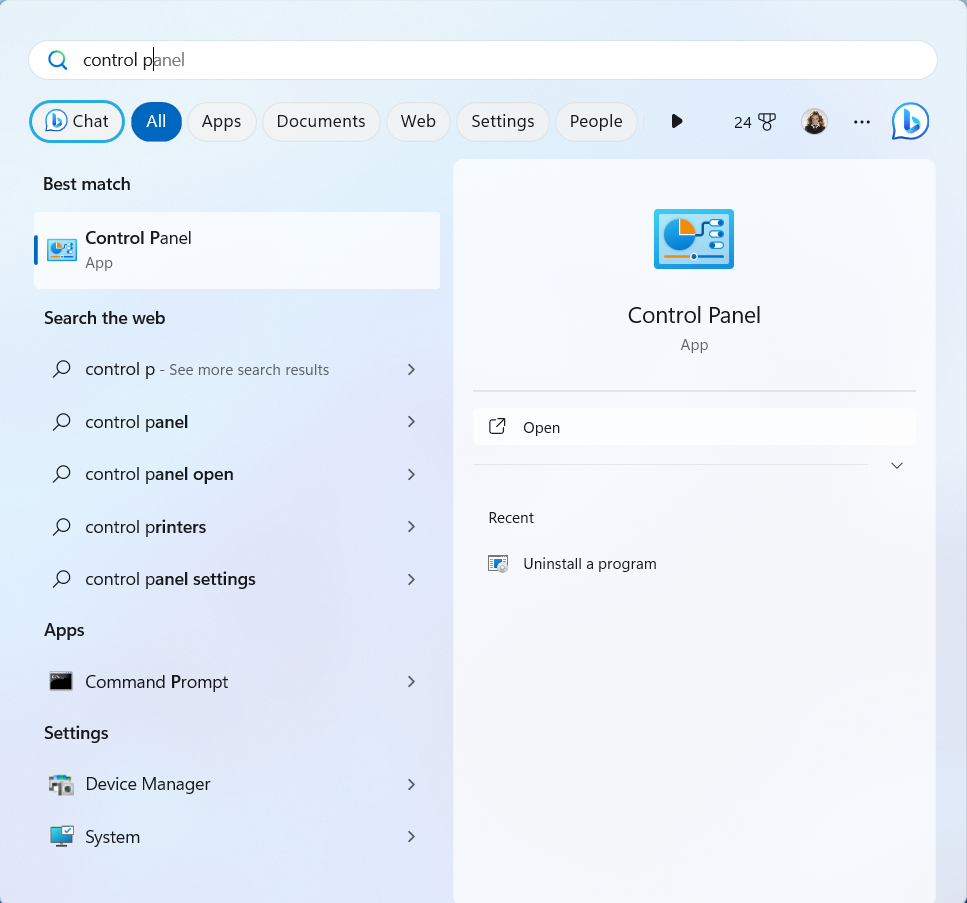
- After that, click Systems & Security.
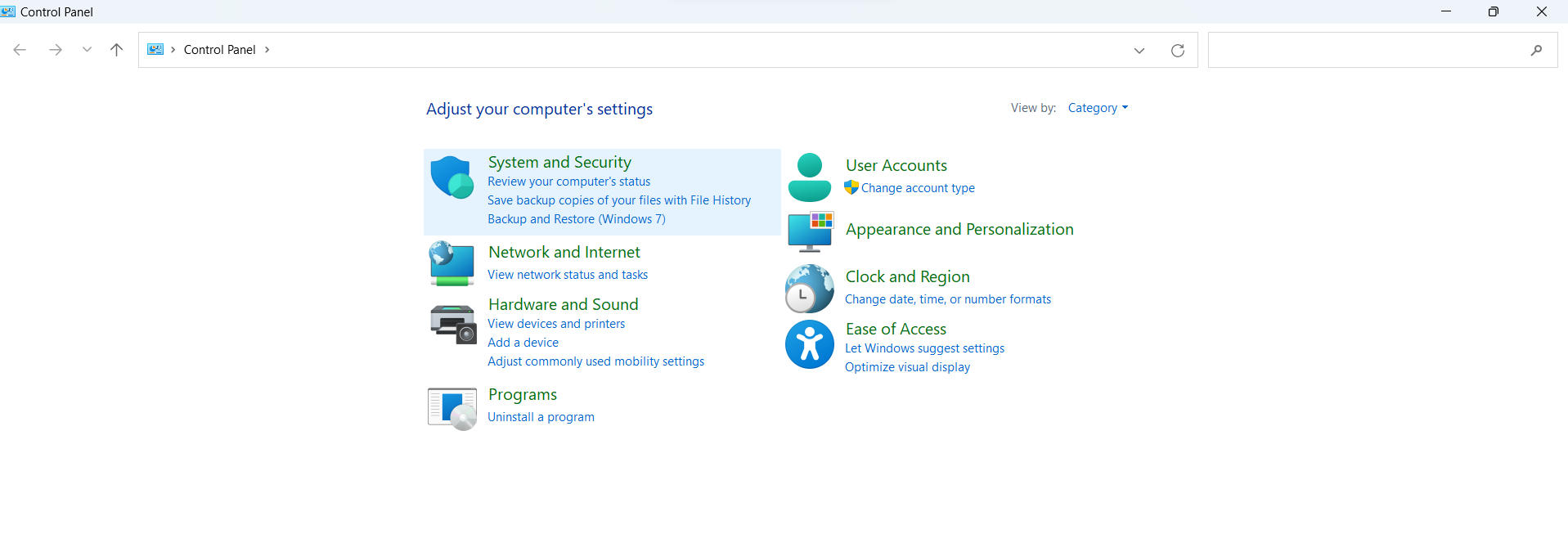
- Then head towards Windows Defender Firewall.
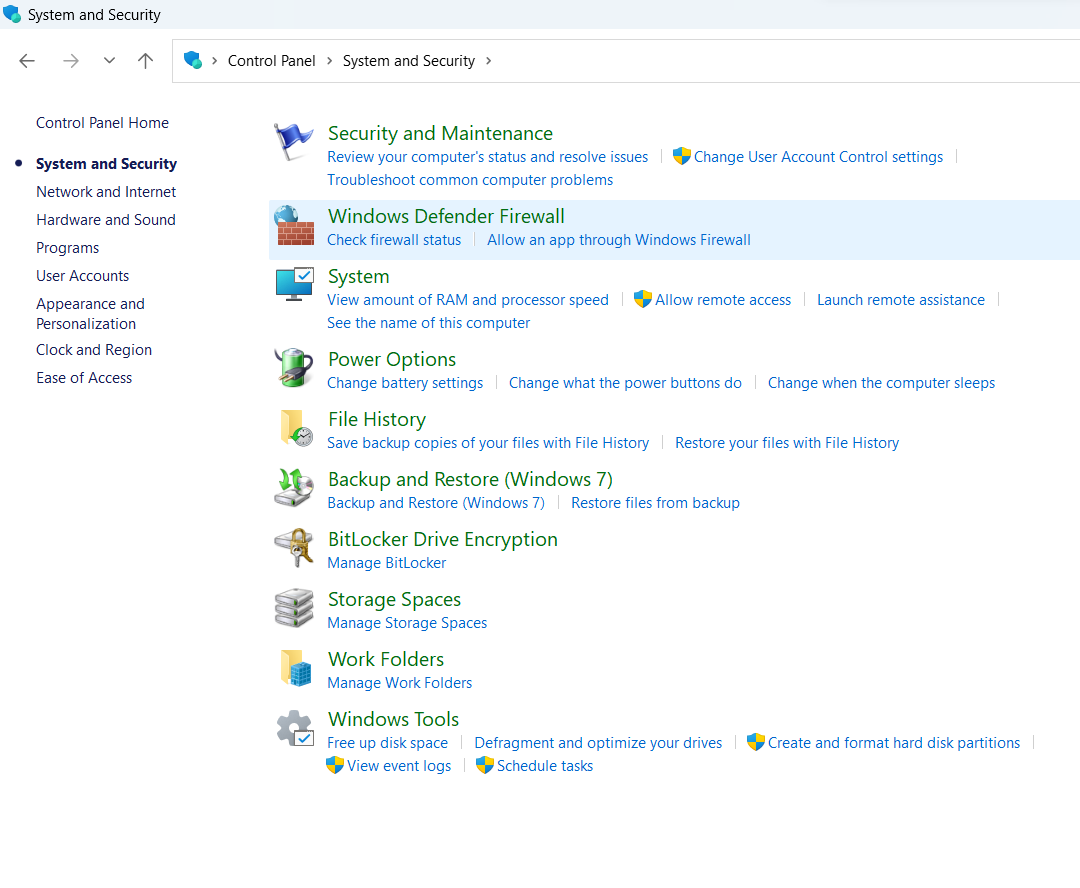
- After that, tap Turn Windows Defender Firewall On or Off, which you’ll find on the left.
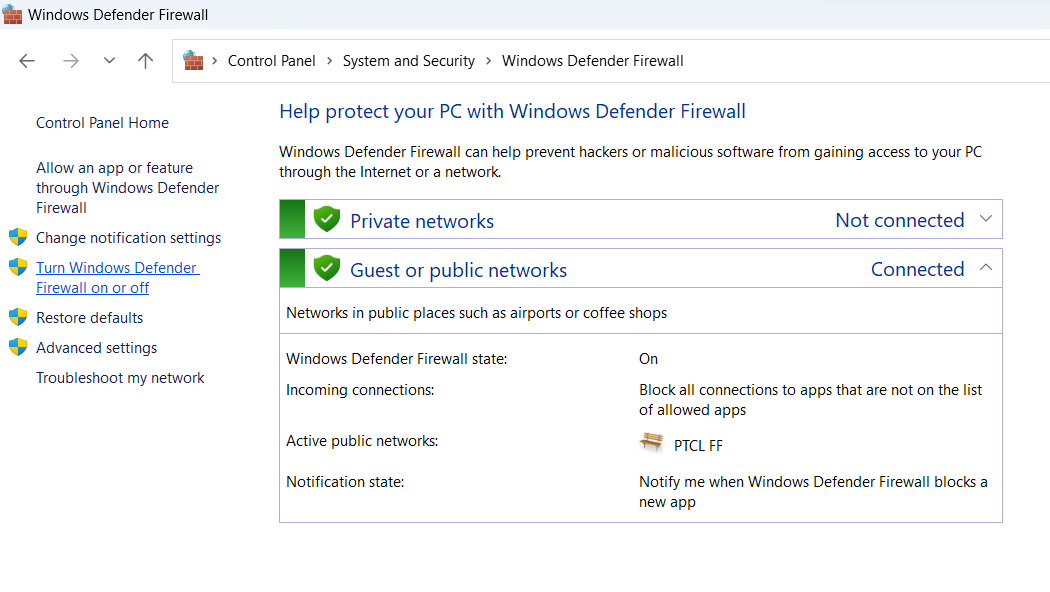
macOS
- Go to System Preferences.
- After that, click Security & Privacy.
- Then head overto Firewall.
5) Cover Your Webcam Just Like Zuckerberg Does
Yes, you heard that correctly. Mark Zuckerberg, the infamous CEO of Meta, covers his laptop camera with tape. He offered a practical and straightforward solution for webcam hacks. So, even if your camera gets compromised, you can cover your webcam with tape or webcam shutters so the attackers cannot spy on you.
6) Strong Passwords for IoT Devices
Hackers can gain access to webcams through IoT devices. If you’re using a weak or easily guessable password for your IoT devices, then they can easily get compromised by hackers. Although IoT devices have password protection, the IoT manufacturers have the default passwords in the user manuals of their devices. Although practical, these user manuals can easily be found online, and hackers can use them to gain unauthorized access to the devices.
Final Thoughts
Webcam hacks can compromise your security and privacy by making you feel vulnerable and under threat. Webcam hacks can lead to severe consequences, which affect every aspect of your life, from your mental health to your personal and professional life. By implementing the measures outlined in this guide and detecting the signs of your webcam getting hacked early on, you’ll be able to enhance your privacy and security and feel at ease knowing that no hacker will ever be able to spy on you.
Frequently Asked Questions (FAQs)
Any webcam, from your laptop to your phone camera, can get hacked without adequate security measures to help prevent these hacks.
Covering your webcam helps prevent attackers from spying on your activities and whereabouts. So even if they can hack your webcam, they won’t be able to spy on you since it is covered.
iPhone cameras can be hacked remotely, but it is difficult and expensive. The iPhone camera can be backed, but it isn’t easy to achieve, which makes it unlikely to be a common occurrence.
Your employer can monitor you from a workplace computer through the built-in camera. However, they will not be able to see or watch you if you’re on your home network and using your own laptop or PC not provided by the workplace.
If your indicator light turns on, it can alert you about potential webcam hacking. However, some hackers use other advanced techniques that enable them to control your webcam without the light blinking or turning on.
If your webcam light is on and you’re not using it, it’s a warning sign that your webcam has been compromised. However, there are additional factors that can contribute to this. For example, your browser extensions are using your camera. Test your browser extensions to determine which of them are contributing to this.
Most webcams only record something if they are in active use, such as for video conferencing. However, hackers can use them anytime if they gain unauthorized access to your device and camera.

No comments were posted yet